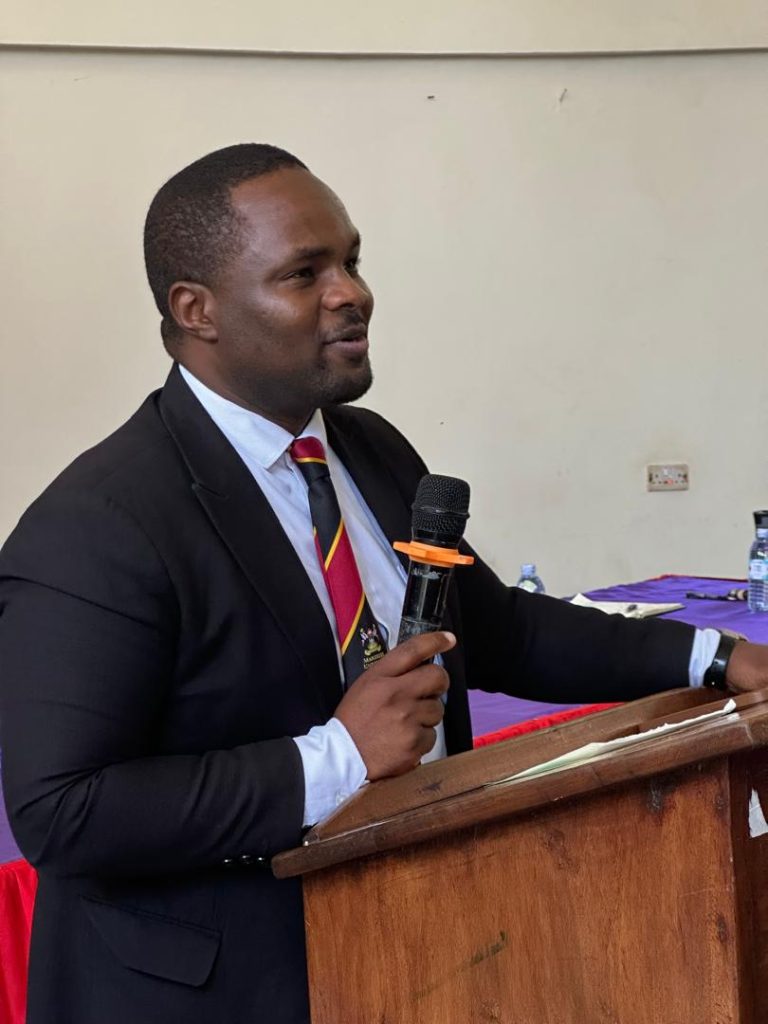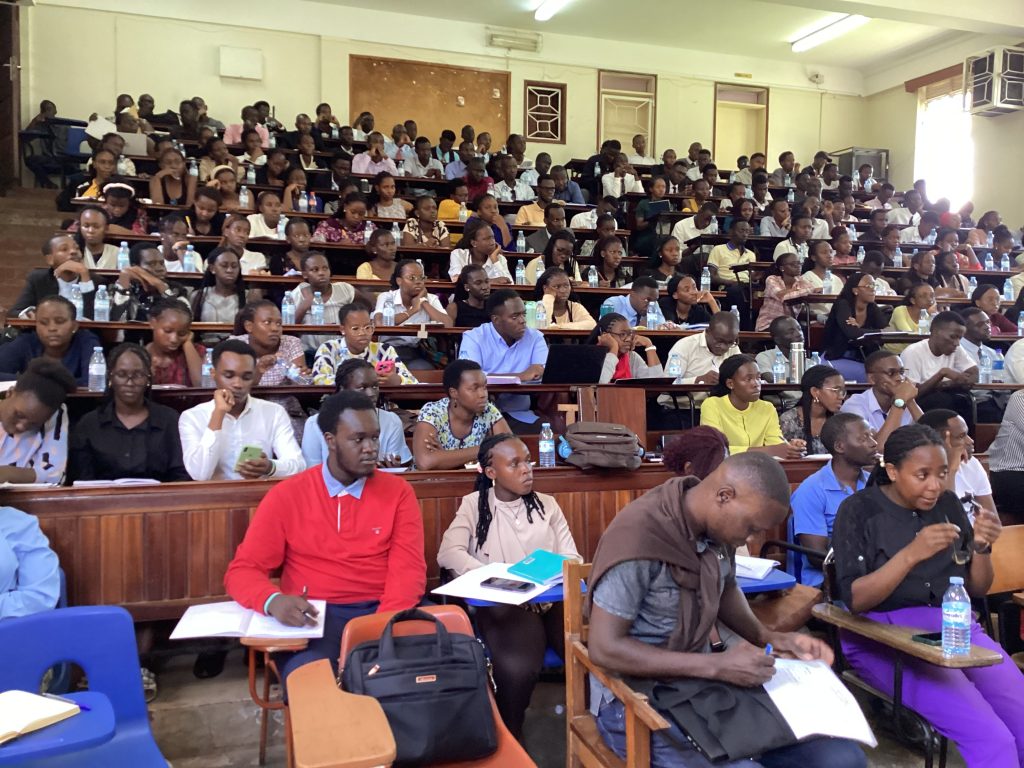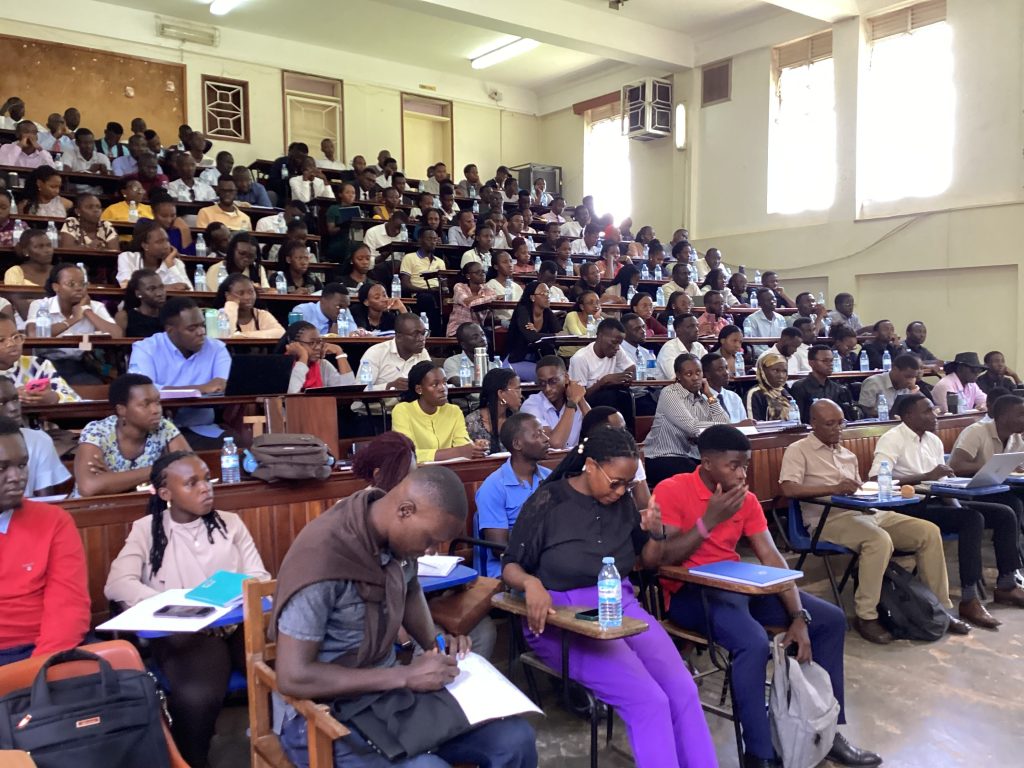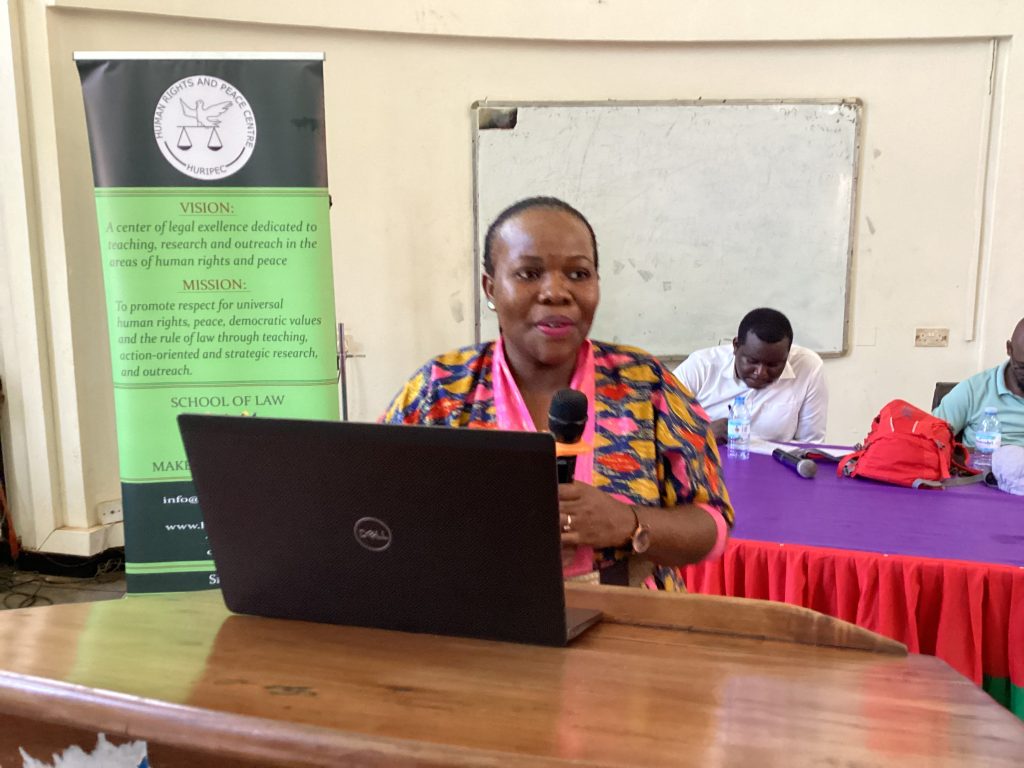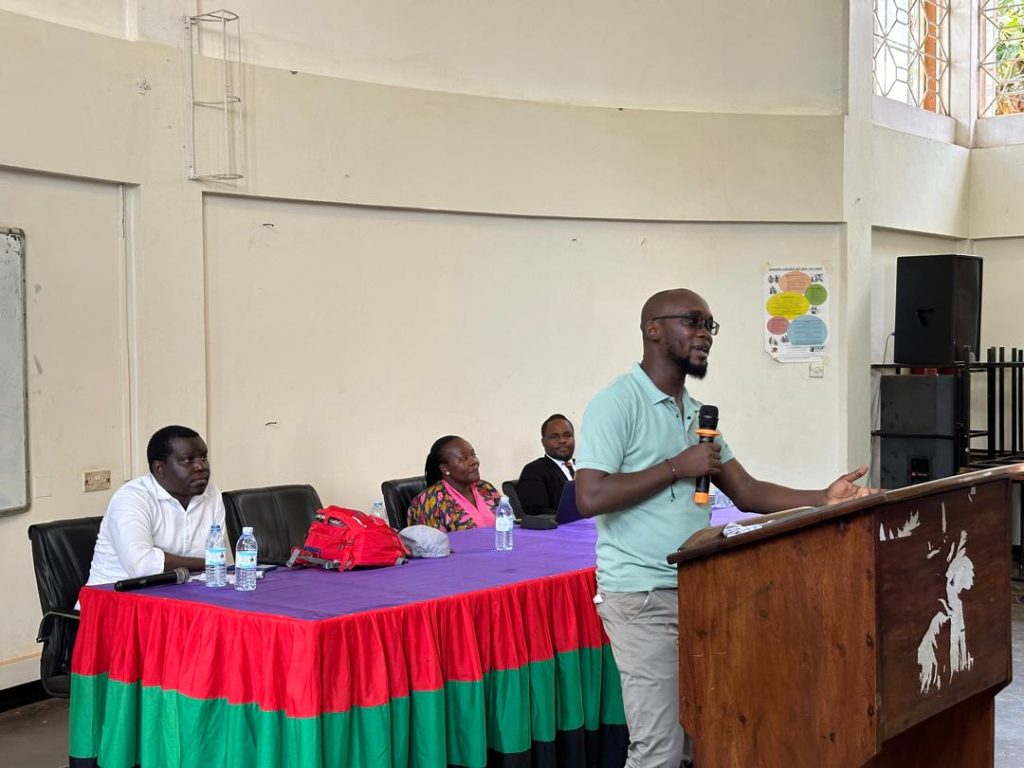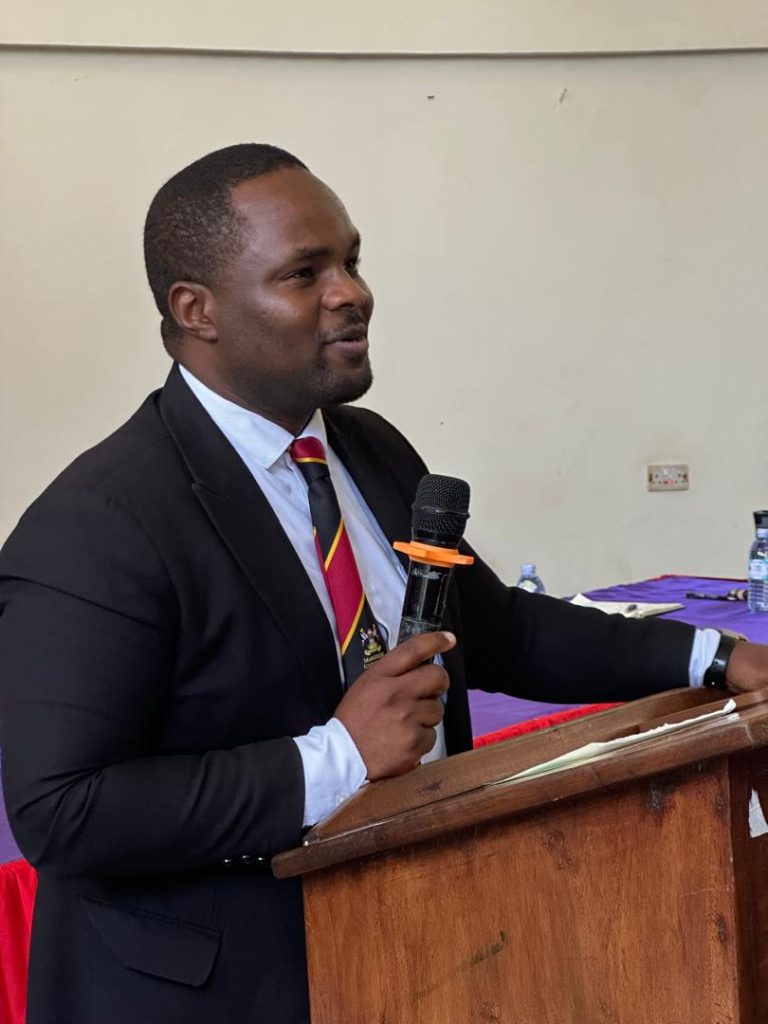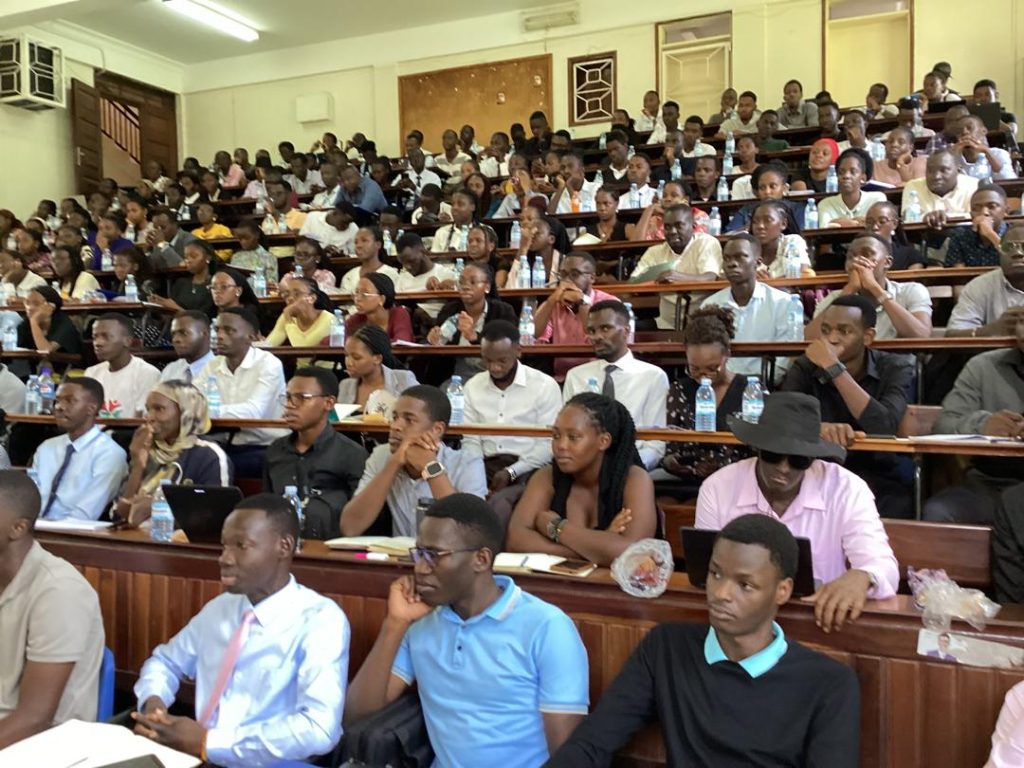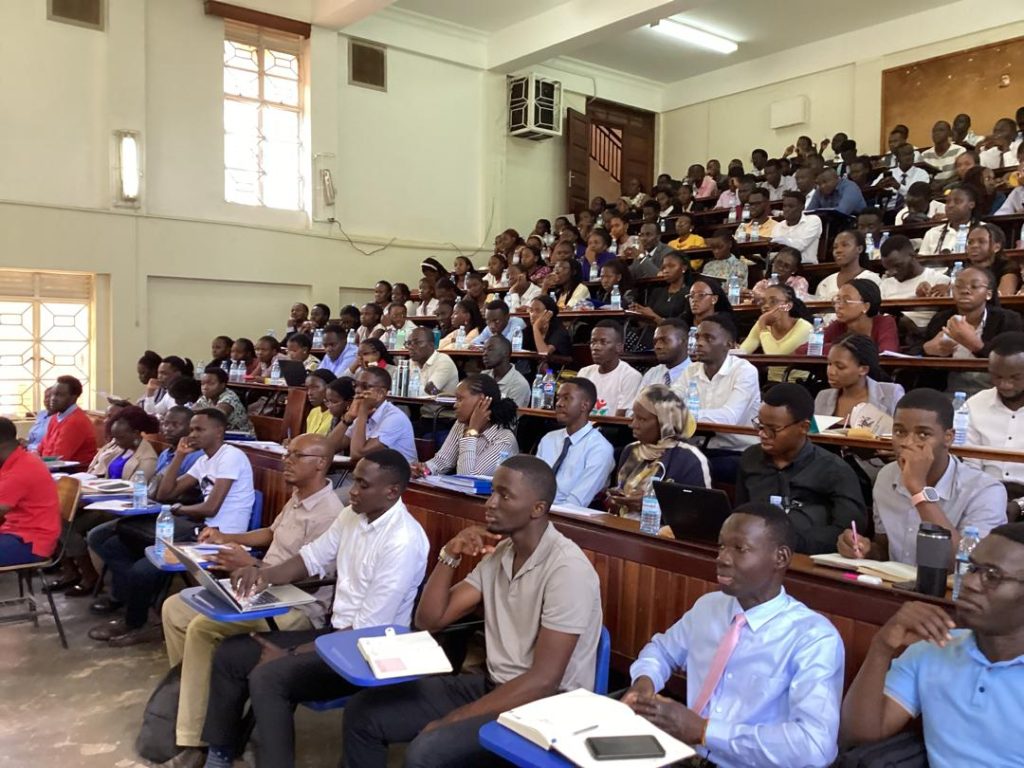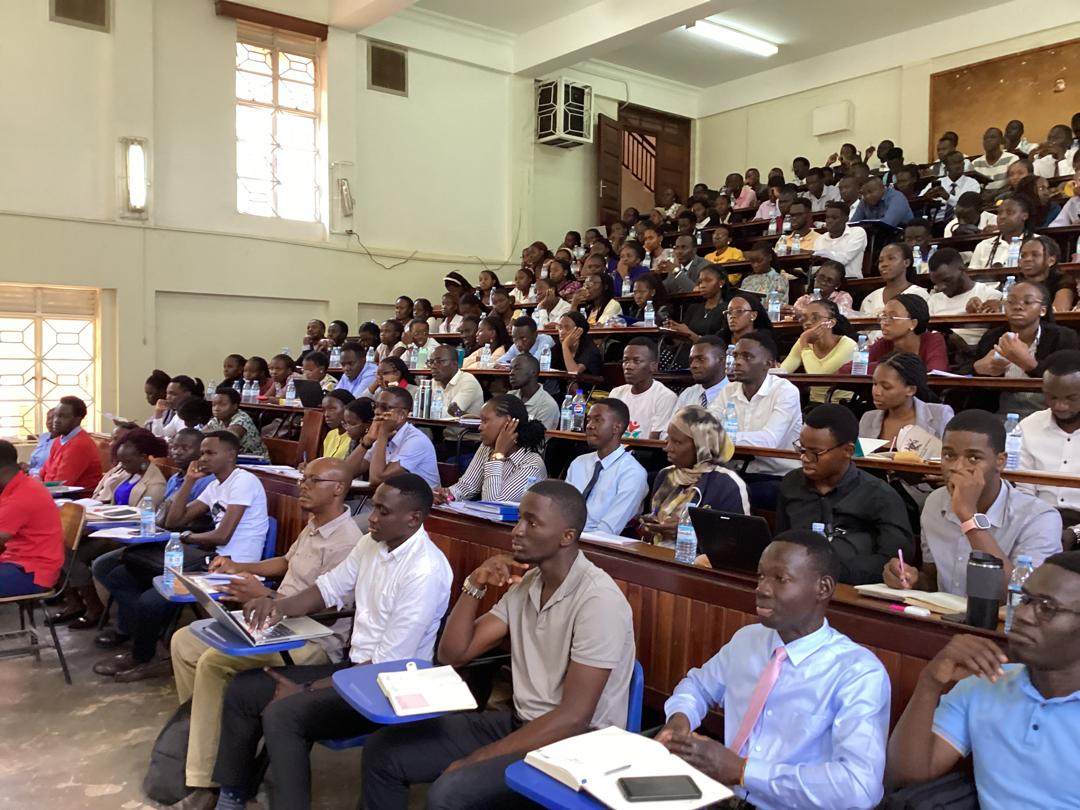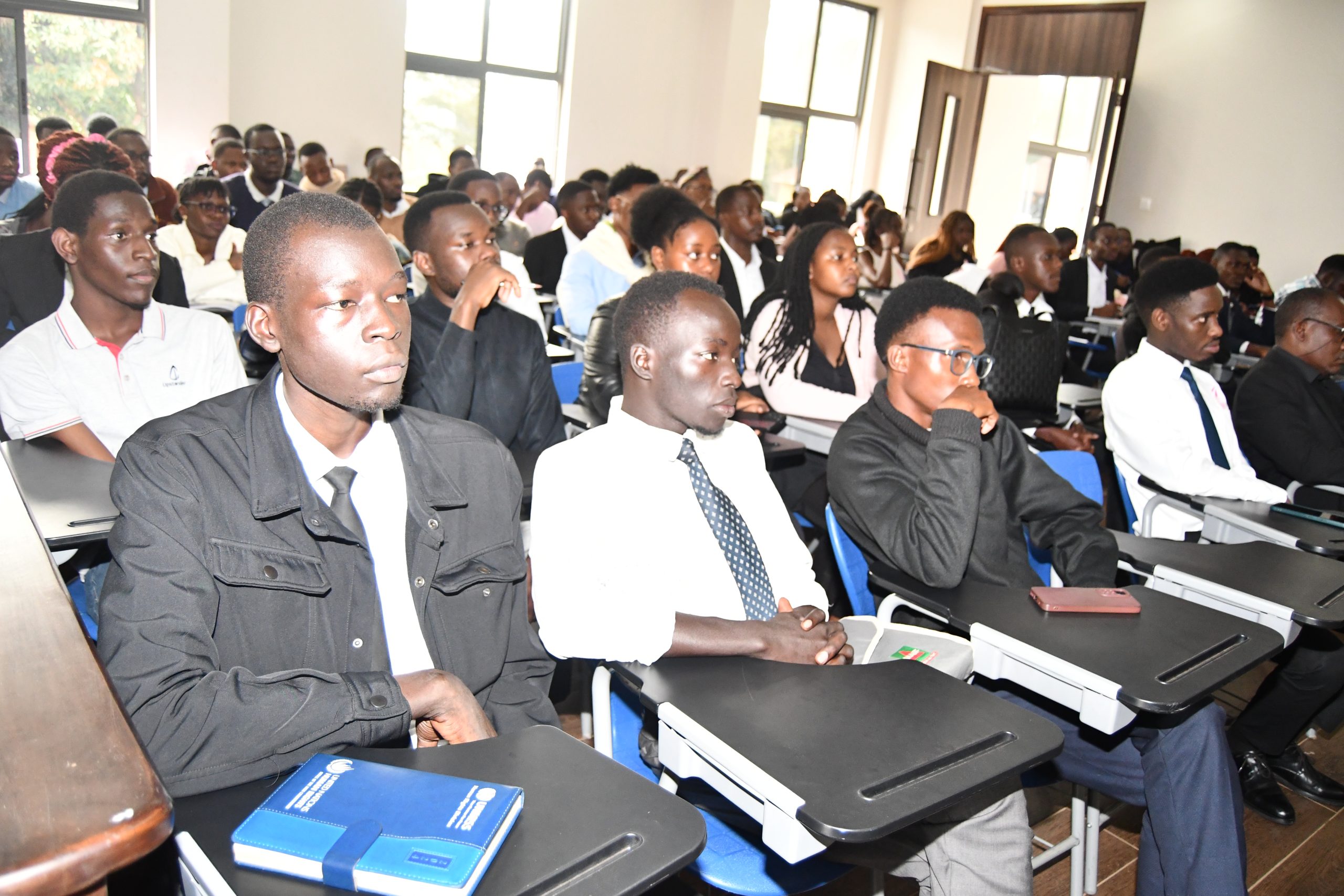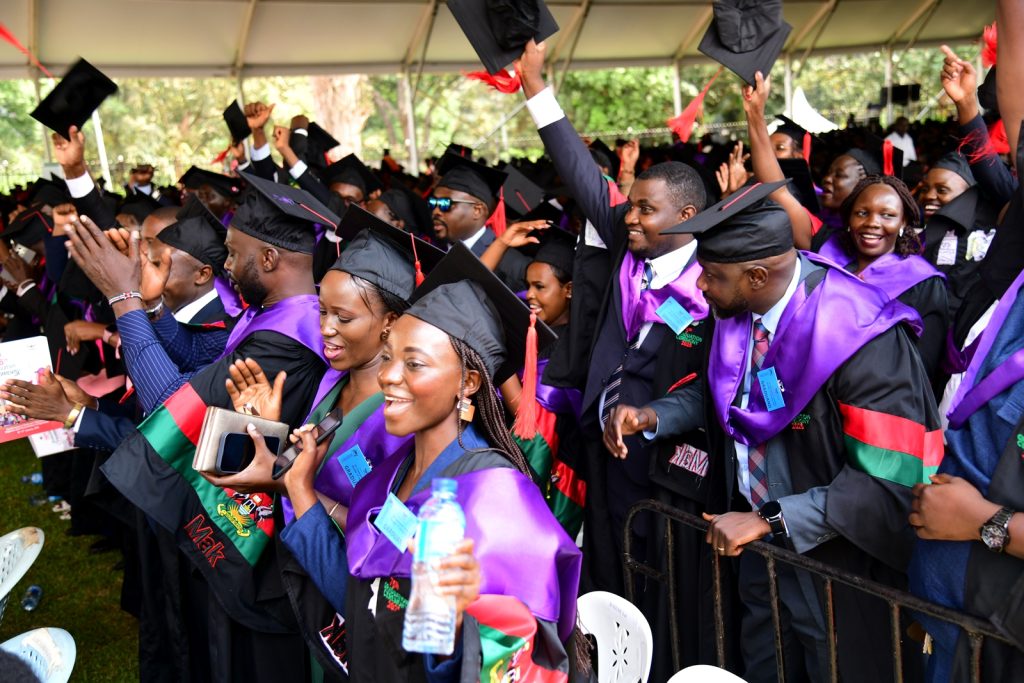BARAZA – Prosecuting or Persecuting: Towards rights-responsive prosecutions in Uganda
The Human Rights and Peace Centre (HURIPEC) hosted the baraza titled, ‘Prosecuting or Persecuting: Towards rights-responsive prosecutions in Uganda’ on the 28th August 2024 at School of Law, Makerere University. The guest speakers were Dr. Catherine S. Namakula, Legal Academic and Convener of the Africa Reparation Hub; and Mr. Godwin Toko, Lawyer, Human Rights Activist and Deputy Team Leader at Agora.
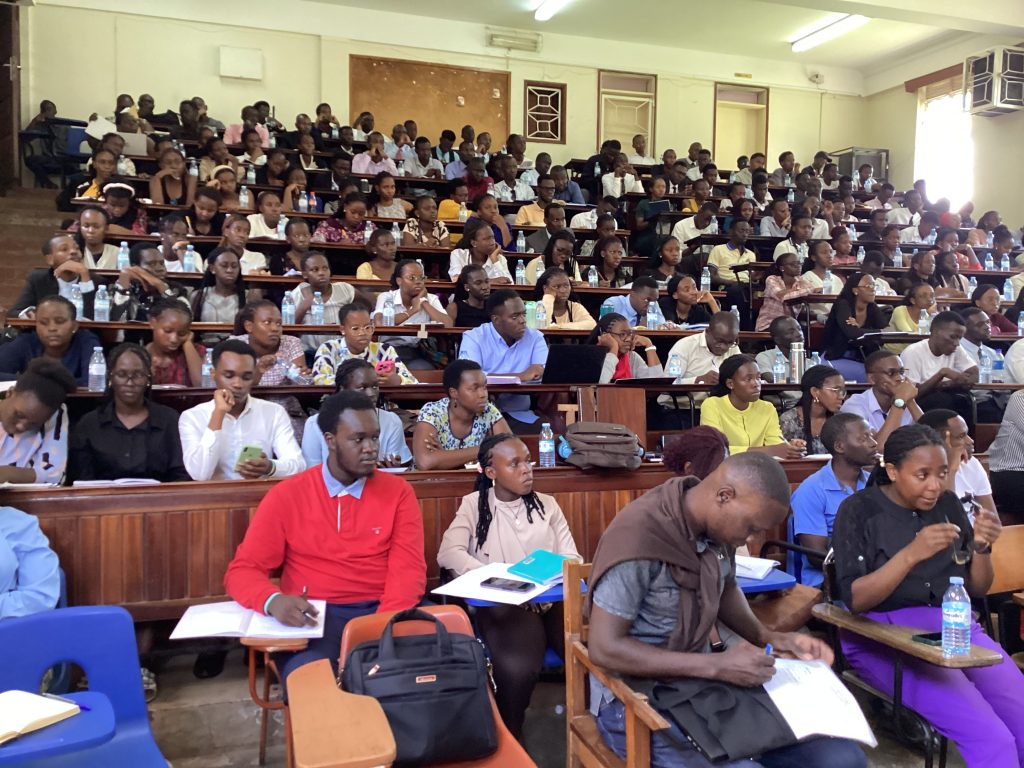
In his presentation, Mr. Toko highlighted that looking at recent expose of corruption in Parliament and subsequent March to Parliament, it was surprising that Government of Uganda (GoU) with its stand of fighting corruption did not support the people. He noted that instead the following happened: arrests of the organisers where they were not allowed to meet lawyers; presentation of those arrested in courts of law without knowledge of their lawyers and remanded to prison; some of the arrested were taken to unknown places.
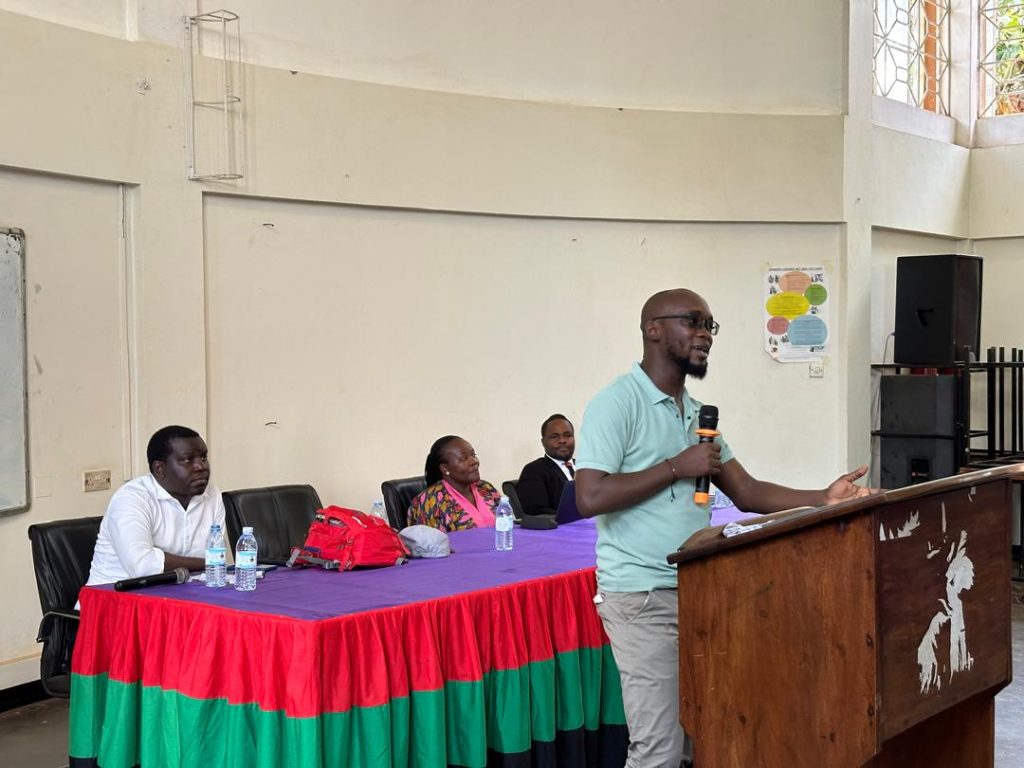
He noted that a pattern has been shown thus: people are arrested and held without presentation in court and for long periods; Director of Public Prosecutions (DPP) and Colonel Edith Nakalema gave orders to release some of those arrested which is corruption; Judiciary isn’t pushing back to protect the population.
Mr. Toko explained that ideally the people have a social contract with the state to be protected, however, in some cases the state becomes the abuser but we need a state that works for all of us.
Dr. Catherine S. Namakula’s presentation highlighted the following: government agencies have a role to protect the people. However, in cases it has been observed that the agencies are forceful which has an effect on people’s dignity and economic livelihoods; allegations of torture, non-objective prosecution and violation of rights has been observed; compromise of security and rights of witnesses and victims; rising budgets because of over-filled prisons; selective prosecution, questions arise of how this is determined and the independence of the judiciary; Parliament overstepping its powers.
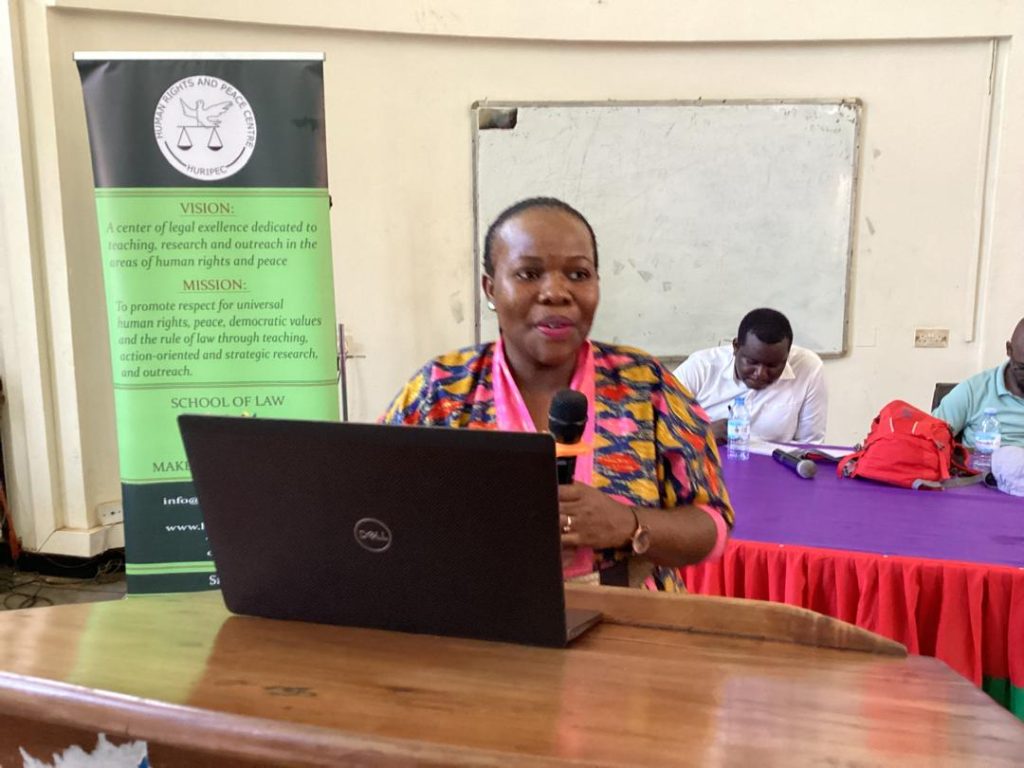
After the presentations, the audience had opportunity to give their contributions as well as ask questions. Highlights of issues arising from the discussion:
- Law schools required to do prepare lawyers who eventually become judicial officers.
- Rising instances where the DPP moves to take over private prosecutions and attacks on private prosecutors
- Ability of the Judiciary to serve as referee in protecting rights of the people
- Does the DPP have limits of what they can prosecute?
- Do we have a social contract with the current government since their first takeover of power was through a guerrilla war?
- If protests are failing what else can be done?
- Existence of multiple power interest and observation of protection of people in positions of power rather than those of the country.
- Caution ourselves against making violations normal.
- Colonial legal systems which were used to oppress people but continuing to be used by leaders on the Africa continent. Laws of oppression with foundations in racism and slavery
- Prosecution based on presidential directives. Where the President gives directive, then the police and DPP find the law through which persons can be prosecuted.
- Definition of hooliganism and activism.
- Ubuntu among the population, we all must care about what happens to others.
- The issue of appointing Ag. Judges which affects the decisions that they take in order to protect their jobs.
Giving closing remarks, Dr. Busingye Kabumba, Director – HURIPEC called for social conscience in law schools when training lawyers. He noted that with experiential learning introduced through legal clinics at SoL, it is hoped that products will do better. Dr. Kabumba thanked the speakers for sparing time to attend the baraza. He also thanked SoL leadership and staff for the support and organisation of the events hosted at the School.
